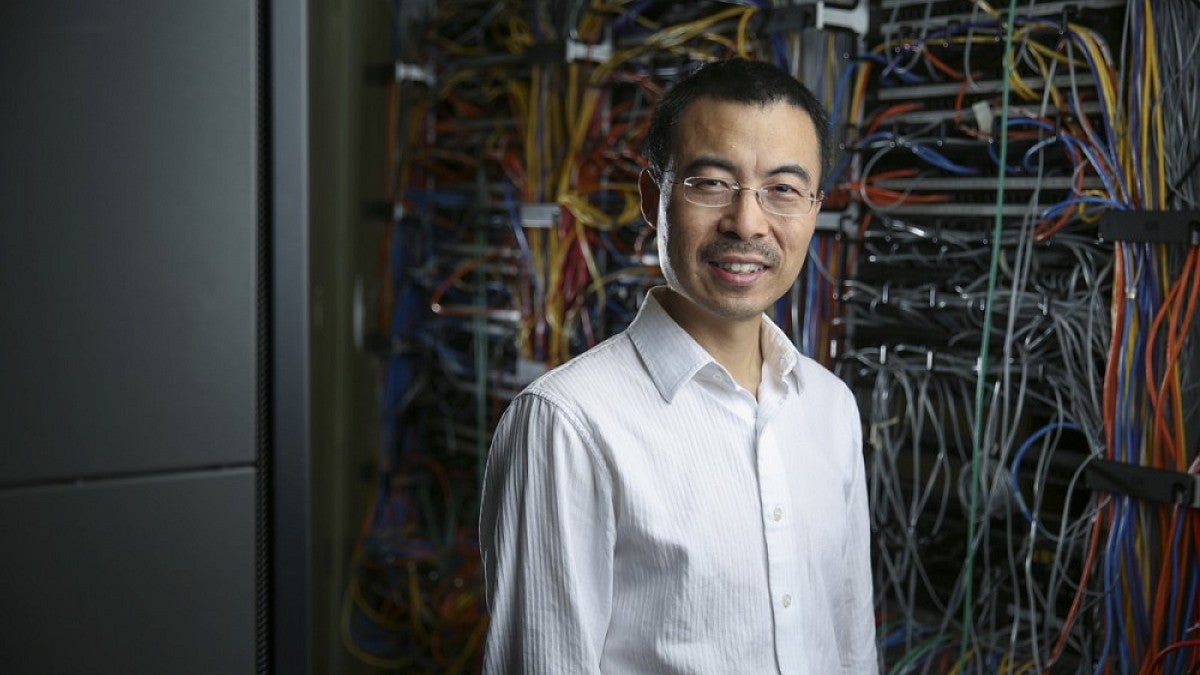The UO has upped its game on the issue of online security, landing a federal designation as a National Center of Academic Excellence in Cyber Defense Research and launching a Center for Cyber Security and Privacy.
"As a member of the Association of American Universities, the University of Oregon must take a critical step in responding to this urgent need,” said Jun Li, a professor of computer and information science and director of the new UO center. “Threats and attacks online have only been increasing in recent years, and this trend will very likely continue in the foreseeable future.”
Li led the UO's efforts to land the coveted federal designation. The new UO center, established in July, was formally announced this week.
The national designation should help attract more research funding, additional faculty and high-caliber students, Li said. The designation runs through the 2019 academic year and is carried by only 60 universities nationwide.
"This is not only meaningful to the University of Oregon, it is also meaningful to the state of Oregon," Li said. "It is a recognition that will bring us more visibility. It recognizes what we do and should open new opportunities for the future, including when we apply for funding to do research on cyber security or education. Federal agencies or foundations may look at the University of Oregon more favorably because of the recognition."
Li attended a formal ceremony held in early June by the National Security Agency and Department of Homeland Security at the U.S. Space and Rocket Center in Alabama, where 16 new recipient institutions were honored for their earning the designation. Joe Sventek, head of the Department of Computer and Information Science, and David Childers from the Oregon Engineering Technology Industry Council attended the event with Li.
National Centers of Excellence began in 1998 when the NSA first announced the program to highlight information assurance education. The designation for cyber defense research was added in 2008 to encourage universities and students to pursue higher-level doctoral research in cyber security to prepare more professionals for work in the field.
Landing the designation was possible, Li said, because such research was already being done at the UO. The work by Li, his colleagues and students involves published research, special initiatives, community service and outreach, production of graduate students and research funding. That work is now being more centralized within the Center for Cyber Security and Privacy.
"Our research excellence rests in Internet security, hardware security, Internet privacy, adversarial machine learning and program analysis, and we are involved in interdisciplinary research in security with several units across campus," he said. "The Internet is a moving target while no one owns it. It is vulnerable to attacks in many different layers, and they've been increasing in the last decade. Attackers can easily hide themselves, and this makes prevention, detection and recovery all quite challenging, especially with the Internet's very large scale around the globe."
As part of the outreach efforts, Li and his colleagues host an annual Oregon Cyber Security Day, which draws speakers and participants from academia, industry and government. They discuss existing challenges and future opportunities in the field. The sixth annual event is scheduled for April 22, 2016.
— By Jim Barlow, Public Affairs Communications


